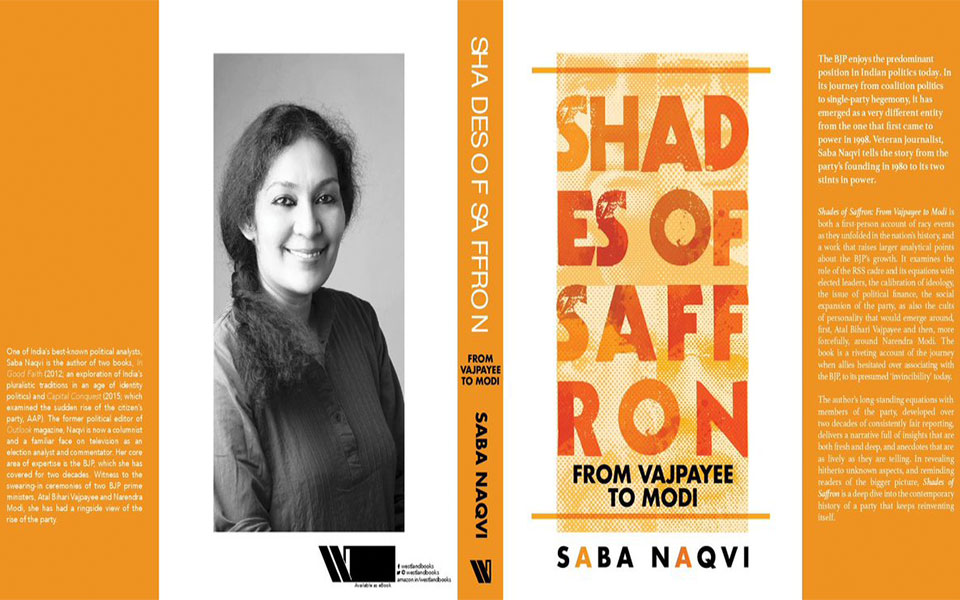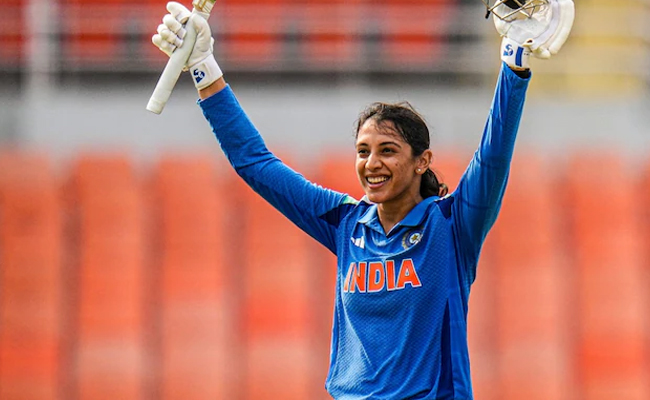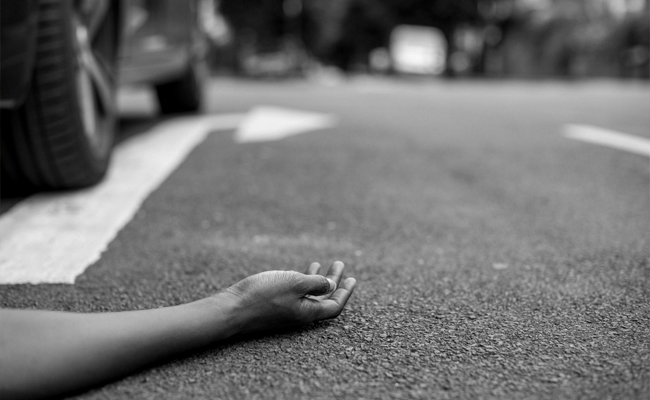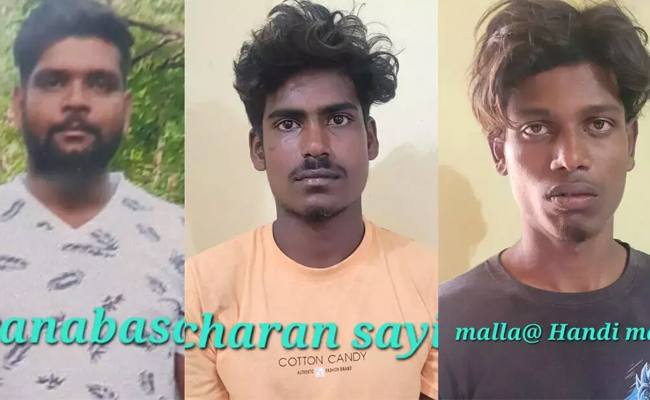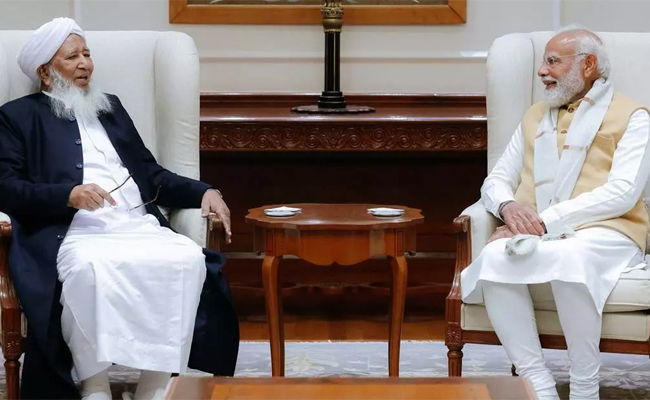New Delhi, June 12: Former Prime Minister Atal Bihari Vajpayee kept a distance from the Ram temple movement and in private conversations objected to its agitational stance, according to a new book titled "Shades of Saffron: From Vajpayee to Modi" by seasoned journalist Saba Naqvi.
The book, said to reveal "hitherto unknown aspects" about the Bharatiya Janata Party (BJP), points out that Vajpayee openly admitted to "being irritated by questions about the Ram temple in Ayodhya".
But Naqvi, who has had the first-hand experience of covering the BJP for well over two decades, contends that "the building of a grand Ram temple was a core issue that the BJP couldn't afford to ignore".
"Vajpayee therefore made a subtle change in tack and said that it was no longer necessary for a BJP government to enact a legislation to build a temple at Ayodhya," Naqvi writes in the book, published by Westland.
"We will resolve the issue through dialogue -- the same way we resolved the Azadari dispute between the Shias and Sunnis of Lucknow. A law will not be needed," Vajpayee, who is currently undergoing treatment for urinary tract infection at the All India Institute of Medical Science (AIIMS) here, is quoted as saying in the book.
In this context, Naqvi explains that it is fascinating that the "issue is again central to the BJP as it heads for the 2019 general elections" with Prime Minister Narendra Modi at the helm.
"There are still legal constraints on the party's desire to build a ‘magnificent Ram temple at Ayodhya' and the same path is again being trod almost two decades later by some individuals like Sri Sri Ravishankar who's trying to get stakeholders to resolve matters," Naqvi notes in the 284-page book.
She also points out that several informed people on both sides say that the long-awaited verdict on the disputed land "could be delivered in 2018", before the general elections.
"What's more, in May 2017, the Supreme Court of India also revived criminal conspiracy charges against senior BJP leaders L.K. Advani, Murli Manohar Joshi and Uma Bharti for bringing down the Babri mosque," she adds.
In the context of Ram mandir, the book also touches upon an earlier conversation between the author and late Kushabhau Thakre, who became party president of the BJP in 1998.
"‘Can anyone think about India without Ram?' he once asked me, but added with utmost honesty that ‘We can only implement our ideology if we have the strength to do so. Yeh sab hamara karyakram hai, lekin shakti nahin hai' (All this is in our agenda but we lack the strength to pursue it)," Naqvi recalls in the book.
Art of Living founder Sri Sri Ravi Shankar had earlier told IANS that the best solution to the festering Ram Janmabhoomi-Babri Masjid dispute is an out-of-court settlement under which the Muslims gift the land to the Hindus for building a grand Ram temple.
Let the Truth be known. If you read VB and like VB, please be a VB Supporter and Help us deliver the Truth to one and all.
New Delhi (PTI): Star batter Smriti Mandhana, who played a pivotal role in India's historic 2025 Women's World Cup triumph, was named the BBC Indian Sportswoman of the Year for 2025 at a glittering function here on Monday.
Chess prodigy Divya Deshmukh won the Emerging Player of the Year award, for her historic FIDE Women's World Cup triumph at just 20.
Preethi Pal was named the Para-Sportswoman of the Year, for winning two bronze medals at the 2024 Paris Paralympics in track and field, while Anjali Bhagwat was honoured with the Lifetime Achievement Award, recognising her pioneering career as India's first woman shooter to reach an Olympic final and her trailblazing success on the world stage.
Mandhana, who is currently touring Australia with the Indian team for multi-format bilateral assignments, said in a video message: "Thank you BBC for giving me the awardfor Best Sportswoman of the Year. 2025 was a special year for women's cricket, especiallytowards the end we had a World Cup and I'm happy I could contribute and help India win matches.".
At 29, the left-handed batter is already among the game's greats, with the second-highest number of centuries in women's One Day Internationals and ranking third in total runsscored among current players worldwide.
Hailing from Sangli city in Maharashtra, the affable Mandhana was inspired by her father and brother, both of whom played cricket at the district level.
In September last year, she made a 50-ball hundred against Australia – the fastest 50 over international ton (men and women) by an Indian in the format, breaking Virat Kohli's record.
The award winners were decided by a distinguished grand jury comprising Leander Paes, Deepa Malik, and Anju Bobby George.
Praising the athletes' achievements CEO of BBC News, Jonathan Munro said: "Congratulations to this year's winners who showcase the very best in sporting excellence. The BBC World Service is committed to bringing such stories of human endeavour and outstanding success to audiences across India and around the world.".
Additionally, the ceremony also celebrated a wide spectrum of talent and impact, recognizing star performers and changemakers for redefining the landscape of Indian sport.
BBC Star Performers of the Year 202.
• Indian Women's Cricket Team: for their historic World Cup victory.
• Ekta Bhyan, Deepthi Jeevanji and Preethi Pal: for their trailblazing performances at the World Para Athletics Championship.
• Indian Women's Cricket Team for the Blind: for their inspiring World Cup victory.
• Indian Women's Kabaddi Team: for their smashing victory in World Cup.
.
BBC Changemakers of the Year 202.
• Indian Women's Ice Hockey Team: for breaking barriers in a non-traditional sport.
• Rajbir Kaur: Indian field hockey player and former captain of the women’s national team.
• Savita Punia: Indian field hockey player and current member of the national team.
• Paani Devi: recognised for her impactful contribution to grassroots sport.

